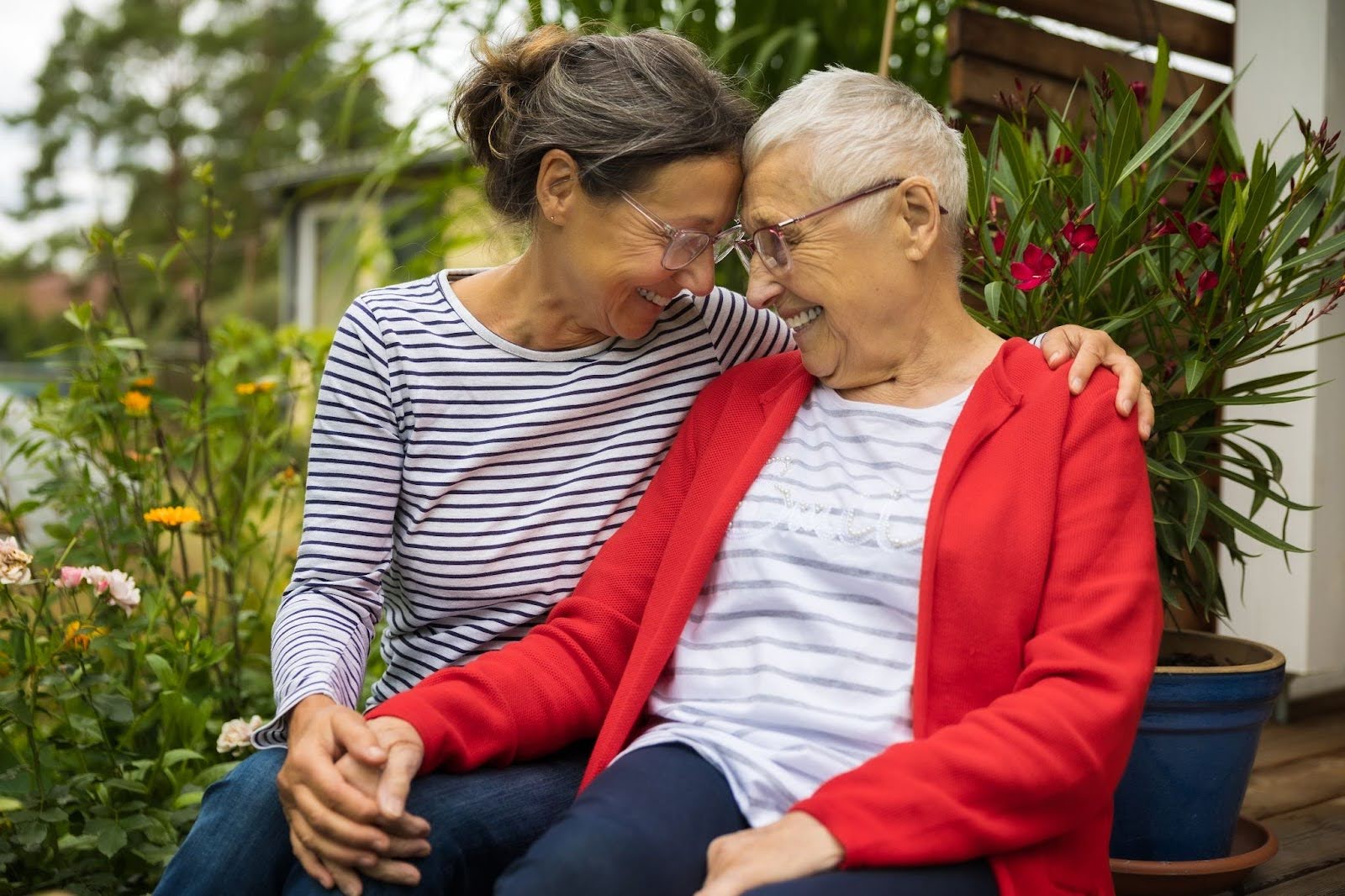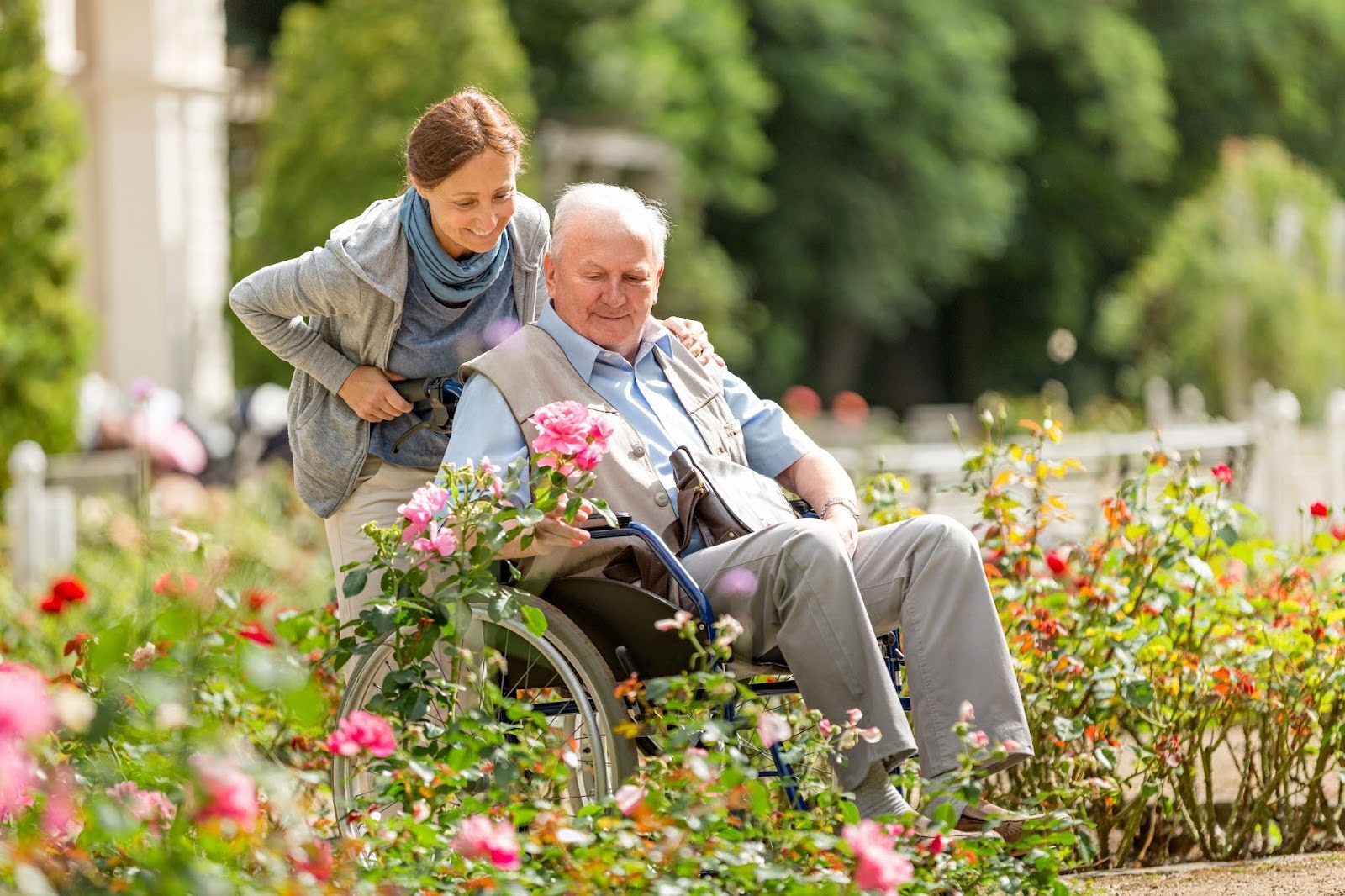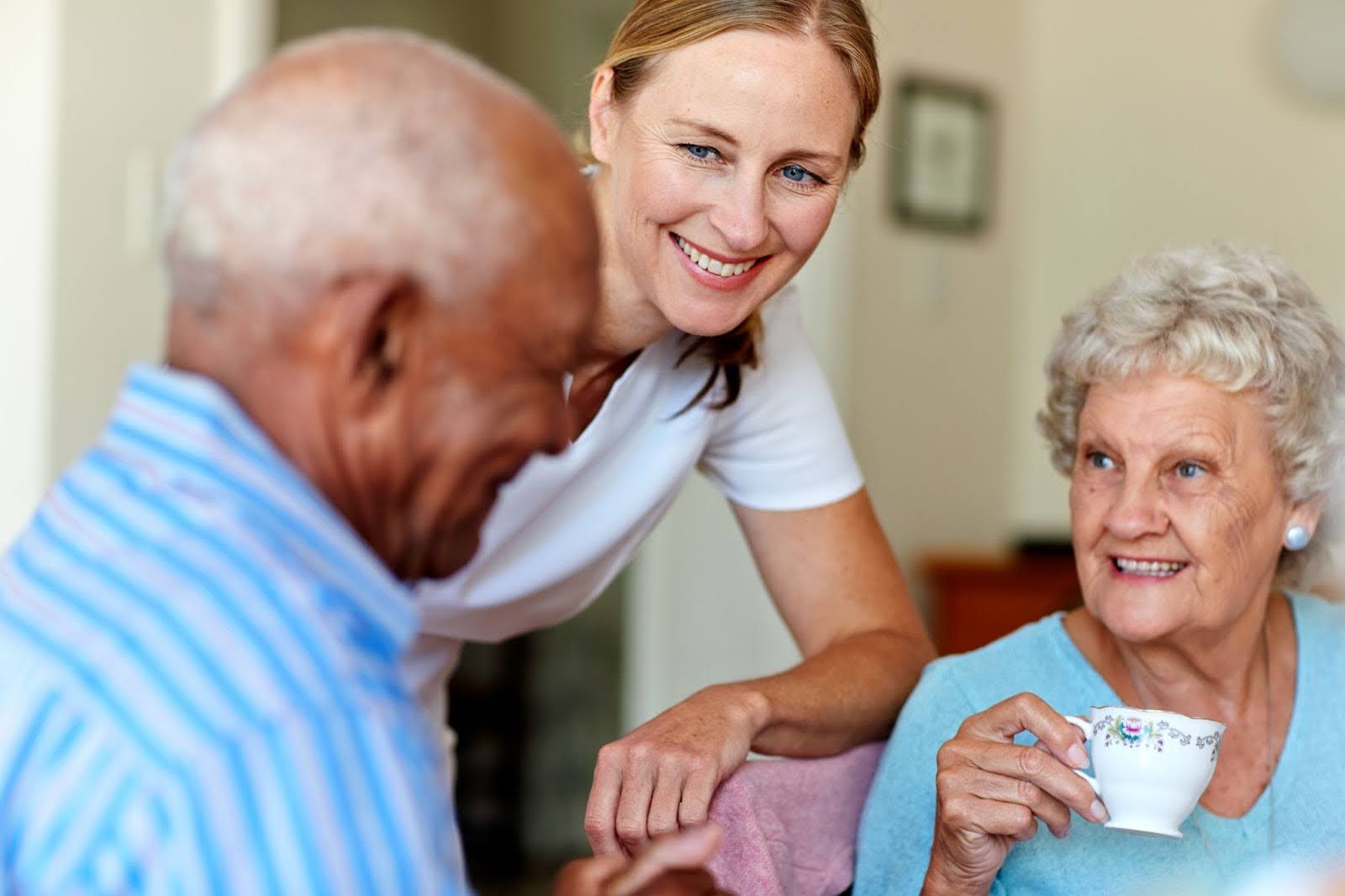
Caring for an Aging Parent Checklist: Empowering Your Parent, Empowering Yourself
The decision to care for an aging parent comes from a place of deep love. Yet, it is normal to feel unsure of where to start or how to manage the evolving demands. This comprehensive guide aims to empower you with the knowledge and tools to provide the best possible care for your loved one.
This caring for an aging parent checklist offers practical strategies, from creating a safe and supportive home environment to navigating nutrition and well-being.
We will also delve into important considerations like financial matters and recognizing the signs it might be time to research assisted living. Most importantly, we will cover essential strategies to safeguard your own well-being throughout this journey, because a rested and empowered caregiver is the best caregiver for your loved one.
Managing Medical Care
As your parents age, managing their medical care can become increasingly complex. Here is how to keep advocating for their health:
- Doctor’s Appointments: Go beyond just attending appointments. Prepare beforehand, write down questions to ask and any concerns since their last visit. Take detailed notes on diagnoses, treatment plans, and follow-up instructions.
- Medication Management: Be vigilant. Medication errors are common, especially with multiple prescriptions. Create a medication chart (include drug name, dose, frequency, and purpose). Use pill organizers and consider medication reminder apps.
- Medical Records: Organization is key! Maintain a file (digital or physical) with medical history, insurance, provider contacts, and a current medication list. Consider giving copies to other family caregivers or trusted confidants.
- Open Communication: Talk openly with your parents about their health goals and wishes. Understanding their priorities will help guide decision-making. Above all, listen to their concerns and feelings.
Creating a Safe and Supportive Home
Your mom and dad’s home should be more than just a safe space; it should actively support their changing needs and promote continued independence. Here are key considerations that go beyond basic safety:
- Fall Prevention: It is not just about safety; falls can significantly affect an older adult’s independence. Simple modifications like grab bars in the bathroom, non-slip mats in showers, and bright lighting make a huge difference. Remove clutter and tripping hazards like loose rugs. Make sure walkways, steps, and driveways are shoved and salted during colder seasons.
- Accessibility: Think ahead. Can they easily navigate stairs or doorways? If mobility becomes limited, would they benefit from a ramp, stairlift, or widened doorways? Proactive modifications promote independence longer.
- Comfort: Their home should be a sanctuary. Ensure furniture is comfortable and easily arranged for conversation and activities. Good lighting and temperature control are essential. Appliances and electronics should be in working order.
Nourishing the Body and Mind
Good nutrition and an active lifestyle are vital for your parent’s overall health and happiness. Here’s how to support their health and happiness holistically:
- Healthy Eating: Focus on fresh, whole foods. If cooking becomes difficult, consider healthy meal delivery services or enlist the help of family and friends to make mealtimes wholesome and social whenever possible.
- Hydration: Dehydration is common in older adults. Offer water frequently, and consider flavored waters or fruit-infused options for variety.
- Exercise: Encourage regular exercise tailored to their abilities—walks, chair yoga or water aerobics are great options. Exercise boosts mood and helps maintain strength.
- Mental Stimulation: Puzzles, reading, learning a new skill, and socializing with loved ones all promote cognitive health, listening to audiobooks or podcasts, ward off isolation and strengthen your connection.
Supporting Independence and Dignity
As needs change, assisting with personal care becomes a delicate balance of offering support while preserving your loved ones’ dignity and sense of control. Here’s how to approach this with sensitivity:
- Assess and Adapt: Regularly evaluate what tasks they can manage independently and where they might need assistance. Consider things like bathing, dressing, grooming, and using the bathroom.
- Preserving Privacy: Offer discreet assistance. Allow them to do whatever they can on their own and give them the time and space to do so. If help is needed, provide a robe for coverage or let them choose when you step in.
- Adaptive Equipment: Shower chairs, raised toilet seats, grab bars, and long-handled grooming tools help maintain independence and safety, as do canes and walkers.
- Professional Help: If needs increase significantly, do not hesitate to seek help from home health aides trained in personal care. This can support both you and your loved one, while providing your loved one companionship and both of you peace of mind.
Combating Loneliness and Isolation
The bond you share with your parents is a powerful source of strength. Here is how to proactively nurture their spirit, combat potential feelings of isolation, and promote their continued emotional well-being:
- Companionship: Quality time is invaluable. Whether it is a conversation, watching a movie together, or sharing a quiet moment, your loving attention combats loneliness and demonstrates the immeasurable value of your bond.
- Outings: Help facilitate social interaction. Encourage visits with friends, family gatherings, or outings to senior centers, libraries, or community events.
- Shared Experiences: Explore activities they enjoy. Maybe it is gardening, listening to music, or reminiscing about old photos. These moments foster joy, help create new memories together, and can open up communication.
- Support Groups: Locate support groups for both you and your parents, offering connection with those in similar situations. Attending these helps remind us that no one is alone in their experience.

Navigating Financial Considerations
Preparing for your parents’ financial future can be complex, but it offers you both peace of mind. Here’s where to start:
- Managing Expenses: Create a system to track bills, income (Social Security, pensions, etc.), and medical costs. A financial planner that specializes in elder care can help with income maximization, budgeting, and long-term financial strategies.
- Exploring Assistance: Investigate potential benefits like Medicaid, Medicare, or Veterans programs. Long-term care insurance, if they have it, may cover some costs in the future.
- Essential Legal Documents: Ensure your parents have up-to-date wills, trusts, and powers of attorney (both financial and healthcare). Consult with an elder law attorney for guidance.
- Preparing for the Unexpected: Having healthcare and financial power of attorney documents designates trusted individuals to make decisions if your parents are unable to do so themselves.
Recognizing When It’s Time for More Support in Senior Living
Deciding on additional care is never easy. If you notice the following signs, it might be time to have a serious conversation about your loved ones’ needs and explore options like assisted living:
- Frequent Falls or Unexplained Injuries: These signal a safety risk and often indicate underlying changes in mobility or health.
- Decline in Cognitive Abilities: If confusion, memory loss or difficulty with decision-making significantly gets worse, they might need consistent supervision.
- Complex Medical Needs: If their conditions require specialized medical services, a community with skilled nursing can provide your loved one with the personalized care they need and you with peace of mind.
- Difficulty With Activities of Daily Living (ADLs): Issues with bathing, dressing, eating, and mobility that compromise safety and independence.
- Self-Neglect: Declining hygiene, missed meals, or a neglected home environment are signs your loved one may need extra help.
- Home Maintenance Issues: If safety hazards like clutter, unaddressed home repairs, or spoiled food are present, they might need help managing their environment.
- Increased Aggression: This can signal underlying medical problems or psychological that are best managed by professionals.
- Mood Swings: Severe depression, anxiety, or drastic mood changes warrant professional evaluation and support.
- Around-the-Clock Needs: If you feel like you cannot provide the level of supervision they need, this is a clear indication that more care is required.
Recognizing the Signs of Caregiver Burnout
Caregiving is incredibly rewarding, but it can also be incredibly demanding. It is essential to prioritize your own well-being to continue providing the best care possible for your loved one. Recognize these common signs of caregiver burnout:
- Persistent Exhaustion: Feeling physically and emotionally drained, even after rest
- Anxiety and Worry: Heightened concerns about your loved one’s health or the future
- Depression: Sadness, loss of interest in activities, changes in sleep patterns
- Sleep Changes: Difficulty falling asleep, staying asleep, or sleeping too much
- Appetite Changes: Overeating, undereating, or significant weight changes
- New or Worsening Health Problems: Headaches, body aches, stomach problems, and other physical manifestations of stress
- Neglecting Your Own Needs: Skipping your own doctor’s appointments, not eating well, or ignoring your well-being
Remember, burnout looks different for everyone. Do not discount your experience if you do not have all these symptoms. Addressing caregiver stress early is key for both you and the person you care for. If you are struggling, confide in a trusted friend or family member, or join a caregiver support group. Sharing caregiver responsibilities can also help alleviate the pressure of feeling you have to do it all yourself.

Embracing New Possibilities for Care and Well-being
Remember, caregiving is a marathon, not a sprint. Regularly assess your loved one’s needs and your limitations, and do not hesitate to seek support. You honor your commitment by being adaptable and kind to yourself while ensuring the best possible care.
If you feel assisted living could be the next step for your mom or dad, Eastcastle Place offers a vibrant solution where the best chapter for your parents readily awaits. We provide a warm and caring community where they’ll enjoy:
- Personalized care plans to ensure their individual needs are met
- Spacious, comfortable apartments that welcomes small pets
- Chef-prepared meals in a restaurant-style dining room
- Friendly neighbors and a welcoming social atmosphere
- A robust activities calendar including outings, fitness classes, creative arts, and stimulating seminars and lectures.
Contact us online or call (414) 240-0694 to schedule a tour and experience the Eastcastle Place difference.

